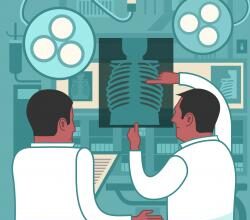
Top Earners? Not Doctors.
Last week the New York Times ran an article about the top earners in healthcare – and doctors did not top that list: administrators did.
The healthcare industry has one of the largest salary disparities of any industry in the US: these top tier CEOs can make upwards of seven figures when you factor in stocks and bonuses, while those who are treating patients in the proverbial “trenches” are making minimum wage. Many hold down additional part time jobs in other industries.
Medicare Payments
With buzz about payments to doctors gracing many headlines these days with the release of Medicare’s payment list, some might have a hard time feeling any sympathy for doctors. The reality is, while doctors are highly trained, their income bracket is determined more often by system they are employed by than the level of skill they possess. The same doctor, with the same set of skills, may make $10,000 more annually in an urban hospital than a smaller, more rural setting. Most of what influences physician salary has less to do with how they practice than where; and, the overall financial healthcare climate in the US is stormy.
How, then, are administrators still managing to rack up such high salaries? The New York Times reports that the average hospital CEO earns an average of $386,000 a year, not including the stocks and yearly bonuses they are privy to. The physician average, factoring in outliers of high earning disciplines like surgery, is around $187,200 (bls.gov). General practitioners earn significantly less. Looking at another integral member of the healthcare team, Registered Nurses, we see that the average yearly income for RNs is only $65,470.
Hospital CEOs
Even higher up on the earning totem pole than hospital CEOs are the insurance megaliths: of all healthcare employees in the US, CEOs of insurance companies, make an average of $584,000 a year – well above hospital CEOs, highly trained surgeons and RNs.
But why is this justified? How could someone who never lays a hand on a single patient make so much in an industry that is supposedly focusing on patient-centered medicine?
While it’s true that hospital CEOs are not likely to ever diagnose a patient, what they do diagnose effects not only the outcomes for the physicians the hospital employs, but the patients they see. Hospital administrators are responsible for the health of the hospital. An ailing facility, whether physically run down or suffering from a fractured hierarchy, can’t be expected to adequately meet the needs of the community it serves. By finding and treating the fiscal, physical and even at times emotional health of the hospital system, a CEO is ultimately responsible for how a healthcare system performs- or doesn’t. When a hospital’s health suffers, the community’s health suffers. If you can’t heal yourself, how can you heal anyone else?
By looking at key aspects of patient safety, facilities, staff and community integration, the CEO not only diagnoses the problems, but establishes treatment protocols. The tough part, and the place where administration typically collides with the rest of the healthcare system, is how the problem list of a healthcare system is prioritized.
The CEO, and administration, decides what the priorities are and they set the tone of the hierarchy of the entire healthcare system. CEOs, while not highly specialized, must wear many hats, not unlike a hospitalist who works with many patients, with many different problems, in the course of one shift.
Still, knowing this, many feel that administrative salaries are bloated in comparison to the ailing healthcare systems they serve. So far, no cure for the economic disparity has been discovered.








